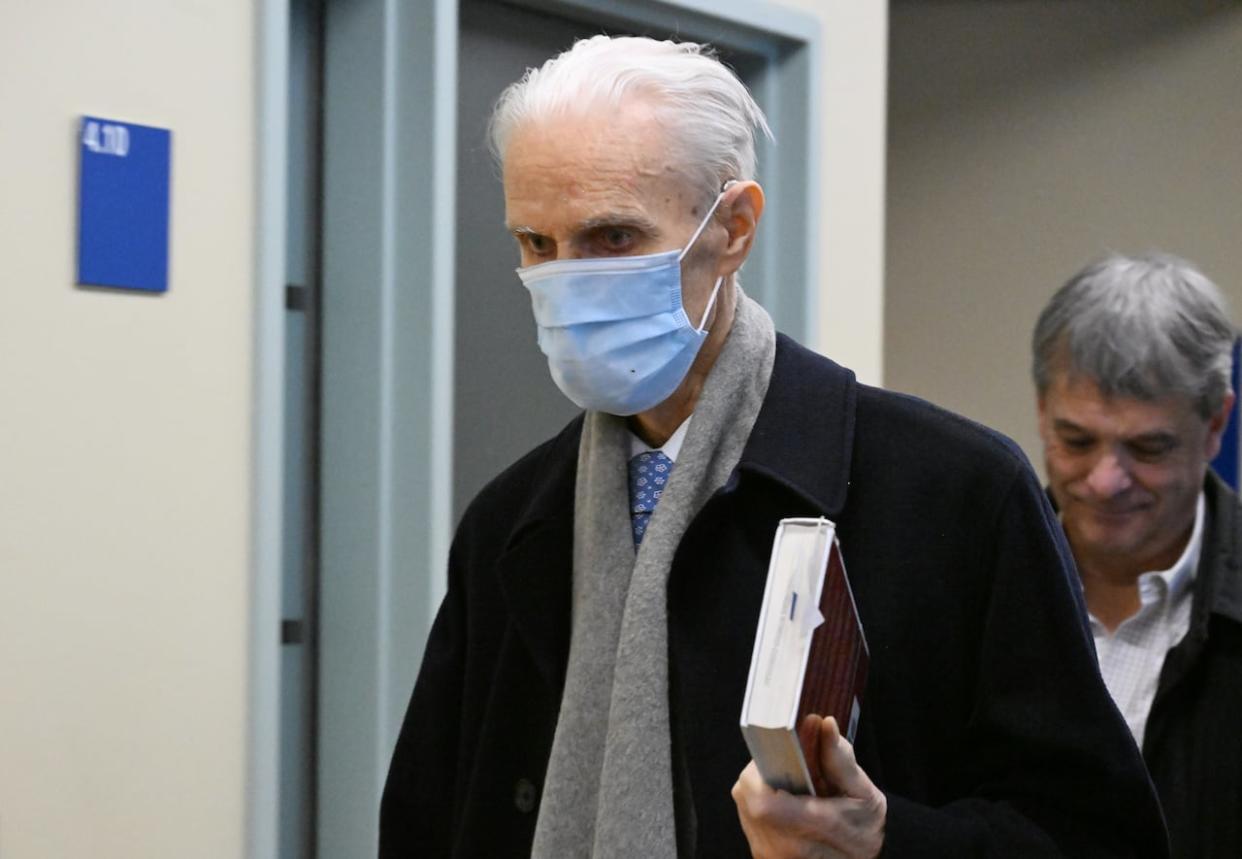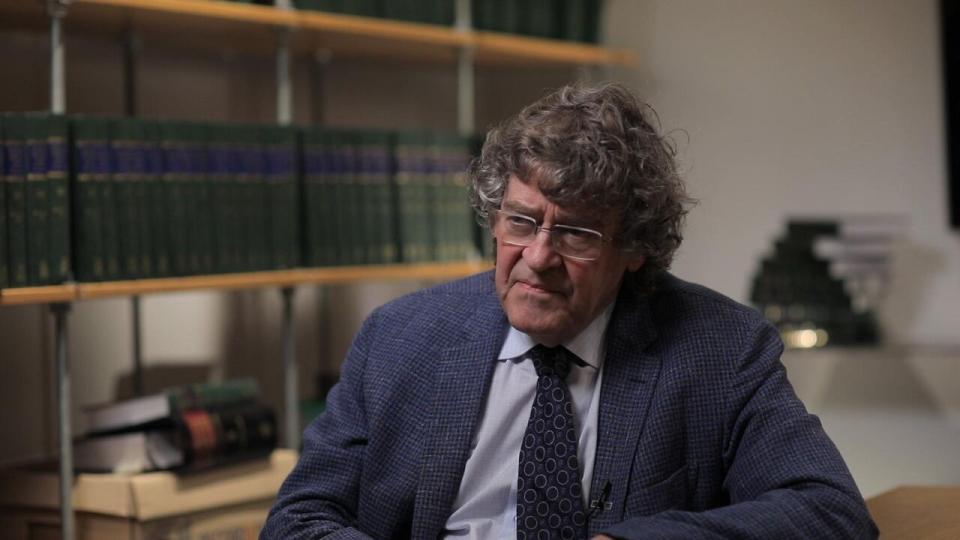Former Quebec judge pleads guilty to manslaughter in the death of his wife

After nearly 15 years of legal battles, Jacques Delisle, a former judge on the Quebec Court of Appeal, has pleaded guilty to manslaughter in the death of his wife.
Appearing in a Quebec City court room on Thursday wearing a mask, Delisle approached the stand and accepted the plea.
"Delisle wants everything to end today," said his lawyer, Jacques Larochelle.
Larochelle said while they agreed to the plea, parties disagreed on the facts, as the Crown maintained that Delisle took an active part in the death of his wife.
Taking into consideration that Delisle served eight years and 310 days in prison, his lawyers have agreed to the Crown's request that Delisle spend one more day incarcerated.
Following a pause, the judge sentenced Delisle to one day in jail, saying that it ensures that the time he already served can be taken into consideration in his sentence.
Delisle hobbled out of the room and muttered "oh no" as he was handcuffed by police.
Speaking with reporters, Larochelle clarified that although Delisle is sentenced to one day in jail, he will only serve a few hours and will be released later today. Shortly after 3 p.m., Delise left the courthouse a free man.
'This case, somewhere, sometime, has to come to an end': Crown
Larochelle said he initially suggested a charge of assisting suicide, which he thought was more appropriate, but he says it was not accepted "for reasons that are beyond my comprehension."
"In the end, it comes to the same result," said Larochelle.
"There is not this cloud over him anymore, that's certainly a relief."
Noah Weisbord, associate professor of criminal law at McGill University, says aiding someone to commit suicide is illegal in Canada but "doesn't have the moral opprobrium that manslaughter does."
"Assisted suicide has less of a stigma, so it looks like you're doing something that's somewhat justifiable ... If the person really was in pain, for example," said Weisbord.
Crown prosecutor François Godin said he accepted the manslaughter plea but would not accept the plea of assisted suicide because he says "that's not what happened."
"We still believe Mr. Delisle would have been found of first-degree murder if he would have stood trial," said Godin.
"This case, somewhere, sometime, has to come to an end. It's been 15 years, he spent almost nine years in prison, 88 years old. We do not believe he would have been able to stand trial."

Delisle's lawyer, Jacques Larochelle, says he intially suggested a plea of assisting suicide. (Rachel Watts/CBC)
'There's no winner,' says criminal defence lawyer
Criminal defence lawyer Rénald Beaudry, who was at the court house on Thursday, agrees. He was pleased to witness the end of what has been a long legal battle.
"Even members of the public were starting to say 'leave him alone, he's 88 years old, [he spent] nine years in prison, so we can move on.' So I suppose that also weighed on the prosecution," said Beaudry.
"There's no winner, not the family, not the prosecution. The only winner is the legal system, which has finally found a solution after 15 years. It's been very long, it's been very costly."

James Lockyer, director of Innocence Canada, took on Delisle's case in 2014. (Doug Husby/CBC)
James Lockyer, director of Innocence Canada, says Delisle's reputation was "excellent until all this happened."
Lockyer took on the former judge's case in 2014, when Delisle had lost all his appeals, helping bring his application to the federal justice minister.
Lockyer, who is still connected with Delisle's family and lawyer, says it may have been difficult for Delisle to make the decision to take a plea, but he likely did it to be able to live out his last days "in peace."
"Whilst today has an unsatisfactory tinge to it, it's nevertheless a day that enables Mr. Delisle and his family to get back to normalcy," said Lockyer.
"I think it's very understandable what he did today … It's been an awful experience for them."
Delisle was ordered new trial after nearly 9 years in prison
In his first trial in 2012, he was convicted of the first-degree murder of his wife, 71-year-old Marie Nicole Rainville, who died in 2009.
Rainville, who had been partially paralyzed due to a stroke, died of a gunshot to the head. Delisle's first trial hinged on detailed forensic analysis over whether she had taken her own life or he had killed her.
Delisle, now 88, said he gave her the gun, but he denied shooting her. Delisle had maintained his innocence.
After spending nearly nine years in prison, he was then awarded another trial when the federal justice minister, David Lametti, said that a "miscarriage of justice likely occurred" in part because one of the Crown's experts made serious mistakes in the original pathology report that led to Delisle's conviction.
Delisle's second trial was also plagued by delays. He was first awarded a stay of proceedings in 2022 by a Quebec Superior Court judge, but then ordered to go ahead with the trial when the Quebec Court of Appeal overturned that decision. He has been walking free awaiting a decision on the second trial.
The Supreme Court of Canada was slated to announce whether it would hear the case on Thursday, but on Wednesday, the supreme court withdrew the case following a discontinuance notice by Delisle's team.


